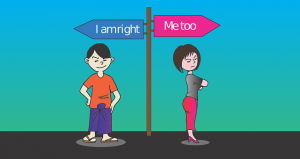Divorce and Credit Card Debt

Common Law vs. Community Property States
When divorce becomes inevitable and couples legally part ways, responsibility for credit card debt may vary from state to state.
During a divorce proceeding, the extent of one’s liability for credit card debt depends on:
- Whether you live in a common law or community property state
- Whether the debt is for a joint credit card
- To whom the debt is assigned to in the divorce.
Most states follow the common law rules when dividing property and debt in a divorce. In a common law state, you are generally liable for all debts in your name; meaning that if you took out a credit card in your name or if you cosigned, then the creditor can seek to collect the debt from you.
In short, after a divorce, you can be held liable for all individual or joint credit cards if your name is on them. However, you probably will not liable for any credit card debt owed solely by your spouse.
In a community property state, most debts incurred by either spouse during the marriage (but not before or after marriage) are consid ered community debts. Both spouses are held equally liable for community debts even if only one spouse incurred the debt.
ered community debts. Both spouses are held equally liable for community debts even if only one spouse incurred the debt.
This means if you live in a community property state, you may be on the hook for a credit card even if it is in your spouse’s name only; particularly if the credit card was used for something that benefited the marriage regardless of who incurred the charges.
But if your spouse used his or her own credit card to buy something that did not benefit your marriage, there may be a greater chance it will not be considered a community debt.
Currently, community property states include Arizona, California, Idaho, Louisiana, Nevada, New Mexico, Texas, Washington, and Wisconsin.
In Alaska, married couples have the option to make their property community property by agreement.
Finally, if possible, you and your spouse should consider settling your outstanding credit card debt prior to it becoming a burdensome issue during or after the divorce action.
By utilizing the free, web-based debt settlement software available at settleitsoft.com, you may be able to settle your credit card debt for less than you imagined and thereby remove a possibly contentious issue.
Since this information is for educational purposes only, be sure to speak with a licensed professional for specific legal advice.
More information about Divorce and Credit Card Debt as well as other financial tips may be viewed in this Blog or the Knowledge Base of SettleiTsoft.com.



 Login
Login






